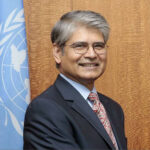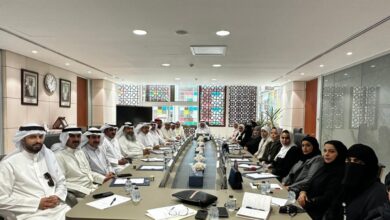A dawn for the Global South

By Asoke Mukerji
Ambassador (Retd.)
Special to The Times Kuwait
On 24 October 2025, the United Nations (UN) Charter will mark its 80th anniversary. When the Charter came into force, the UN General Assembly (UNGA) had 51 member states. Today, there are 193 member-states in the UNGA, of whom 134 have declared themselves to be developing countries under the banner of the Group of 77 (G-77). Most members of the G-77 are popularly referred to as the Global South.
The interests of the Global South have been brought into the mainstream activity of the UN between 1964, when the G-77 was founded, and 2015, when the UNGA adopted its historic Agenda 2030 on Sustainable Development, with 17 Sustainable Development Goals (SDGs).
The SDGs represent a holistic approach to ensuring an interlinked world, bringing together individual, social, economic, and environmental priorities, to be implemented in a nationally-driven effort through supportive flows of multilateral finance, transfers of technologies, and multiple stakeholder partnerships between governments, businesses, academia, and civil society.
The UN’s Summit of the Future held in September 2024 sought “a recommitment to international cooperation based on respect for international law, without which we can neither manage the risks nor seize the opportunities that we face.” This applies first and foremost to the development priorities of the Global South, which is the “central objective of multilateralism.”
The anodyne Pact for the Future adopted by the UN’s Summit of the Future in September 2024 did not contain any new commitments on how Agenda 2030 is to be implemented. The UN Summit on SDGs held in September 2023 had attributed the challenges to implementing Agenda 2030 primarily to a breakdown of international cooperation on peace, security, and development. The Pact’s silence on a time-bound target for reforming the UN and the UN Security Council (UNSC) casts a shadow on the future of constructive and equitable international cooperation.
Aware of this ambivalence, India took the lead during its G-20 Presidency in 2023 to bring together countries of the Global South to support ‘reformed multilateralism’ and an effective UN system. India convened three virtual Voice of the Global South Summits (VOGSS) in January and November 2023, and in August 2024. The theme of the third VOGSS, in which 123 countries participated, was ‘An Empowered Global South for a Sustainable Future’.
Global South countries felt that the outcome of the existing process in the UNGA launched in 2008 to reform the UNSC had been inordinately delayed. Common issues that emerged from this Summit, in addition to challenges in implementing the SDGs of Agenda 2030, included shared concerns regarding climate change, and the application of new technologies, including Artificial Intelligence, that impacted on developing countries. Chairing the Summit, India’s Prime Minister Narendra Modi called for a Global Development Compact.
The proposed Global Development Compact faces a stiff challenge from developed countries. Speaking in the UNGA on 7 October 2024, the United States asserted that the Pact for the Future and its annexes “do not create or otherwise change any rights or obligations under international law.” It questioned the concept of “development as an inalienable human right”. This contradicted the UNGA’s Declaration on the Right to Development adopted in December 1986.
The 80th anniversary of the UN Charter provides an opportune moment for the Global South to integrate the issues prioritized by the VOGSS process, anchored in the right to development, into the UN Charter. As an international treaty, the Charter contains a specific review provision in Article 109 that needs to be implemented in a sequential three-stage process.
In the first stage, Article 109 provides for a ‘General Conference’ of the member-states of the UN to be convened for ‘reviewing the present Charter’. The decision to convene the General Conference requires a two-third majority in the UNGA (129 out of 193 member-states) and 9 votes out of 15 in the UNSC (without the veto of the P5).
In the second stage, Article 109 provides for the UN member-states participating in the General Conference to recommend any amendments to the UN Charter by a ‘two-thirds vote of the conference’. In the third stage, any proposed amendments to the UN Charter would come into effect when ratified by two-thirds of the members of the UN, including the P5 of the UNSC.
Having coordinated the VOGSS process, India is well placed to take the initiative during the 80th anniversary of the UN in 2025 to call for implementing the first stage of Article 109 of the UN Charter by convening a General Conference. A constructive discussion within the framework of such a meeting, held on equal terms between the Global South and other UN member-states, will ensure that the dawn of the Global South can catalyze a revived and reformed United Nations in the 21st century.

Asoke Mukerji
India’s Permanent Representative to the United Nations in New York between 2013-2015.














